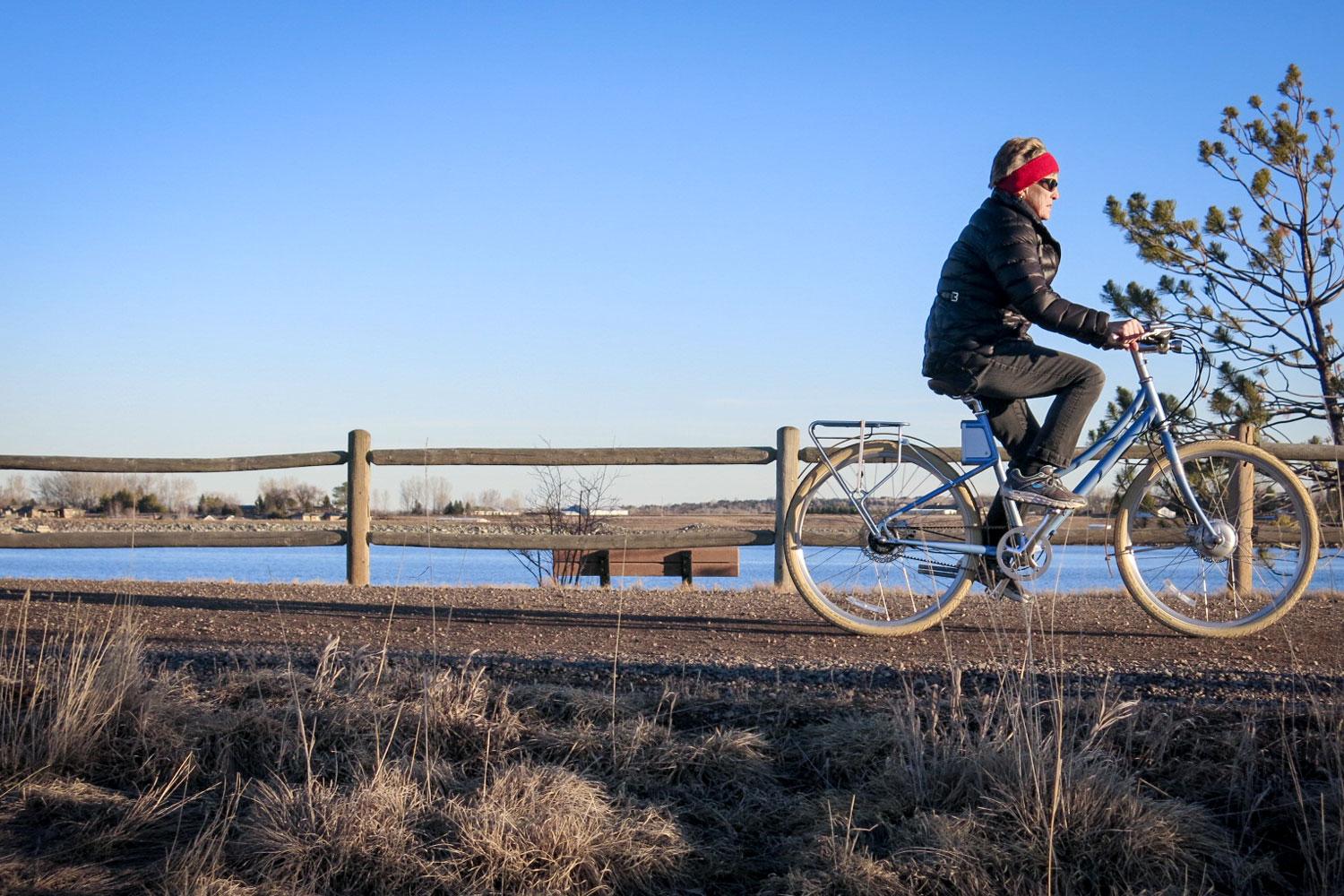
Gov. Jared Polis is pushing lawmakers to make it even cheaper for Colorado residents to buy an electric car, electric bike or electric lawnmower.
The governor announced the plan as an amendment to his 2023-2024 budget proposal Tuesday. Ahead of the upcoming legislative session, he now wants legislators to approve $120 million in new tax credits to nudge the public to buy products that combat climate change and air pollution.
"This is for Colorado to get a head start to help more people afford electric vehicles earlier and reduce the cost in Colorado," Polis said at a press event at the governor’s mansion.
Polis’ request comes as lawmakers prepare to manage a tricky budget in the upcoming legislative session. State economists have warned about the possibility of a recession, which could throw off Colorado’s already complicated plans for spending and taxpayer refunds. During his press conference, Polis appeared to try to dispel any concerns about further depleting state coffers with a new set of rebates.
“This is not the general fund. This is tax credits,” Polis said.
The proposed incentive package is the latest example of Polis' carrot-heavy approach to climate policy. Will Toor, the executive director of the Colorado Energy Office and a chief architect of the state’s climate efforts, said the proposed budget amendments would expand the state tax credit for electric vehicles from $2,000 to $5,000.
Under the proposal, anyone who buys an e-bike would also be eligible for a $500 rebate, while low-income residents could receive a $1,000 discount. Toor said the new tax credits would also cover 30 percent of the cost of new electric lawn and garden equipment.
"This package is an important complement to existing policy and federal incentives that would help supercharge climate action and progress on clean air in Colorado," Toor said. "I would anticipate it's going to be pretty attractive to many members of the legislature."
Toor said the plan is a direct response to the Inflation Reduction Act, which Congress approved last year with an estimated $370 billion in spending for new climate programs.
The new law renewed a $7,500 federal EV tax credit but added a long list of restrictions. Starting around March, a buyer can get half the full credit if a vehicle has a battery with at least 40 percent of minerals from the United States or its trade partners. The other half is only available if 50 percent of the battery components are made in North America.
Those rules could exclude many EV models. To account for the new policies, many automakers have announced plans to shift supply chains and build new factories in the U.S., but it could take years for their vehicles to qualify for the federal discounts.
By expanding the state tax credit, Toor said the state could avoid a slowdown in Colorado's electric car market. Almost 70,000 EVs are already on the road, according to a Colorado Energy Office dashboard. Polis has set a goal to have 940,000 EVs on Colorado roads by 2030.
To reach those targets, Colorado has split from electric vehicle strategies in California. Last year, the state's Air Resources Board approved new vehicle regulations, which included a ban on the sale of new gas-powered vehicles starting in 2035. Other deep-blue states are in the process of adopting the same rules.
Meanwhile, the Polis administration has proposed a modified version of the same regulations. While it includes many of California's aggressive electric vehicle sales targets, it drops the 2035 ban.
Other pieces of the proposed Colorado tax rebate package would incentive the use of clean hydrogen, community geothermal heating projects and sustainable aviation fuel.
It follows a bill Polis signed last year allocating more than $110 million for programs to improve local air quality. That included a two-year e-bike incentive program, which the state plans to launch later this year.
Toor said the new proposal aims to make sure Colorado continues to offer e-bike discounts even after the program expires. He said that's especially important following the success of Denver's e-bike rebate program, which helped more than 4,000 residents buy a new two-wheeled electric vehicle in less than a year.
"People love them and there's demand for them. And so we will be proposing an ongoing e-bike tax credit as a part of the clean transportation package," Toor said.








